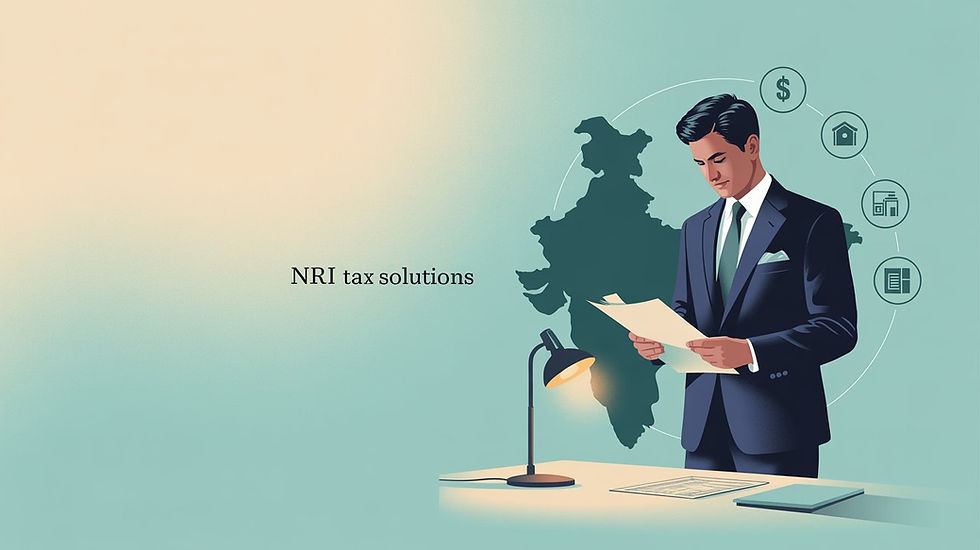Understanding Credit Card Debt
- Pankaj Desai
- Aug 23, 2023
- 3 min read
Updated: Sep 9, 2023
Credit cards can be powerful financial tools, providing convenience and flexibility in our daily transactions. However, they also come with a potential downside - credit card debt. When not managed wisely, credit card debt can quickly spiral out of control and cause financial stress. In this article, we will explore valuable tips to better comprehend credit card debt, create a debt repayment plan, choose the right credit card, and employ strategies to avoid falling into debt traps.
1. Understanding Credit Card Debt
Credit card debt refers to the amount you owe on your credit card when you carry a balance from one billing cycle to the next. This amount typically incurs interest, making it crucial to pay off your balance on time. The credit card industry classifies users based on their creditworthiness, which determines the credit limits and interest rates offered.
In the credit card industry, users are categorized based on their creditworthiness, which ultimately shapes the credit limits and interest rates extended to them. These categories encompass various profiles, including **revolvers**, who tend to carry a balance from month to month, and **defaulters**, who have struggled with repayment obligations. Understanding these classification terms provides insight into how credit card companies tailor their offerings to different types of users.
Credit card debt is notably high in India due to several factors. These include the prevalence of high interest rates, often reaching up to 42% annually, coupled with limited financial literacy and inadequate consumer protection. These factors contribute to the accumulation of debt, making responsible credit card management crucial for avoiding financial pitfalls.
Understanding the classification system will help you manage your credit card more effectively. Responsible use of your credit card and timely payments can improve your credit score, making you eligible for better terms and benefits in the future.
2. Creating a Debt Repayment Plan
When you find yourself in credit card debt, it's essential to formulate a structured repayment plan to regain control over your finances. Start by listing all your credit card debts, along with their respective interest rates. Prioritize high-interest debts, pay them off first, and make minimum payments on remaining debts.
Consider budgeting and cutting down unnecessary expenses to free up more funds for debt repayment. Additionally, explore opportunities to increase your income, which can accelerate your debt repayment process. By setting clear goals and adhering to your plan, you can gradually eliminate your credit card debt.
3. Picking the Right Credit Card for You
Selecting the right credit card greatly affects your financial well-being. Choose wisely for a positive impact. When selecting a credit card, pay attention to the interest rates, annual fees, and rewards offered. Low-interest rate cards are ideal if you plan to carry a balance occasionally, while rewards cards can be beneficial for responsible users who pay off their balances in full each month.
Evaluate your spending habits and financial goals to find a card that aligns with your aspirations and needs. Remember to read the fine print and be aware of any hidden fees or limitations that may apply.
Strategies to Avoid Credit Card Debt
Preventing credit card debt is vital for maintaining a healthy financial life.
Here are some strategies to help you stay out of debt:
1. Pay off the balance in full each month: Avoid accruing interest by paying off your entire credit card balance before the due date.
2. Limit the number of credit cards: Having multiple credit cards can increase the temptation to overspend. Stick to a few cards that suit your needs.
3. Set a budget and track expenses: Creating a budget will help you manage your finances better and prevent impulsive spending.
4. Emergency fund: Build an emergency fund to handle unforeseen expenses and minimize dependence on credit cards.
5. Avoid cash advances: Cash advances like Early salary, quick loans usually involve high fees and interest rates. Be cautious when considering them. Use alternative options like personal loans if you need quick funds.
Conclusion
Credit card debt can quickly become a burden if not managed effectively. Understanding the credit card industry's classifications, creating a debt repayment plan, selecting the right credit card, and employing preventive strategies are key steps to avoid falling into debt traps. By implementing these credit card debt tips, you can maintain control over your financial well-being and make the most out of your credit cards without falling into excessive debt. Remember, responsible credit card usage is a powerful tool that can positively impact your financial future.
Managing money can be overwhelming! Whether you're tackling financial challenges or striving to achieve life goals, consulting a reliable financial advisor is a wise move. For expert guidance and effective personal finance management, talk to Turtle today -
1. Just head to our website — Link here
2. Click on “Book a free call”
3. Choose the date & time as per your convenience and RELAX!
Turtle Advisors will take it from there!


